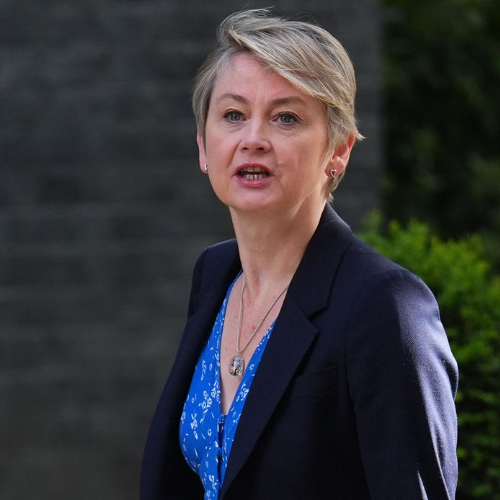The UK’s Home Secretary has spoken out in defense of the government’s decision to maintain economic ties with China, even after recent claims of a suspected Chinese spy infiltrating British circles. Yvette Cooper, the Home Secretary, acknowledged the risks posed to the UK’s national and economic security but argued that the country must continue to engage economically with China to support growth. Her comments come after news broke about a suspected Chinese spy who had allegedly built a close relationship with Prince Andrew, the Duke of York.
Strong Stance on National Security
Yvette Cooper made it clear that the UK is not ignoring potential threats to its security. She stated that the government remains committed to taking a “robust approach” to any challenges related to national security or economic security. This includes addressing concerns about China and other countries that may pose risks to the UK.
Despite the growing tensions, Cooper emphasized the importance of maintaining economic cooperation with China. She described the situation as complex, explaining that while security concerns must be addressed, the UK must also continue to interact with China in order to foster economic growth. The UK is navigating a delicate balance between protecting its national interests and encouraging economic collaboration.
Spy Allegations Rock the Royal Family
The controversy surrounding China intensified when reports revealed that a suspected Chinese spy had formed a close connection with Prince Andrew. The individual, who had been interacting with the Duke of York, was later identified as a suspected member of the Chinese Communist Party (CCP) and a person working for the United Front Work Department (UFWD). This department is known for gathering intelligence on behalf of the Chinese government.
China Espionage Shocker: Prince Andrew Linked to Alarming Spy Allegations Banned
The Duke of York, however, cut ties with the man after receiving warnings about his activities. It was reported that the man had gained significant influence, even being authorized to act on Prince Andrew’s behalf in some matters, particularly related to engagements with potential Chinese business partners. This raised alarms about potential political interference by China in the UK’s affairs.
Further investigation revealed that the man had also developed connections with several senior British figures, including politicians and business leaders. He was involved in promoting trade ties between the UK and China and had worked with companies such as GSK and McLaren. Authorities feared that these connections could be used by the Chinese government to influence British politics.
Exclusion of the Suspected Spy
The suspected spy’s activities came under the scrutiny of MI5, the UK’s domestic security service. After he was stopped at the UK border in 2021, his phone was examined, revealing his close links to Prince Andrew and other influential figures in the UK. Following this, an immigration tribunal upheld the Home Office’s decision to exclude the individual from Britain, citing concerns over his potential ties to Chinese intelligence.
Duke of York Faces Backlash Over Suspected Chinese Spy Links
The suspect, a 50-year-old Chinese national, was accused of being involved in intelligence-gathering efforts on behalf of China. The tribunal heard that the man had developed a network of influential contacts in the UK, which could potentially be used for political purposes. He was also associated with the 48 Group Club, an organization aimed at promoting trade between China and the UK, which has had a long history of connections with key figures in British politics and business.
Despite the serious nature of the allegations, Cooper and other government officials have insisted that the UK must not sever economic ties with China. Cooper argued that, while the security risks should be taken seriously, the UK’s relationship with China is essential for fostering trade and economic growth. This has led to some controversy, with critics warning that China may be using these connections to exert influence over the UK’s political and business institutions.
The case has sparked a broader debate about the nature of the UK’s relationship with China, particularly in light of security concerns and allegations of espionage. While the UK government remains focused on balancing economic cooperation with national security, the incident involving Prince Andrew and the suspected spy has added fuel to the ongoing debate about the risks posed by China to British interests.


